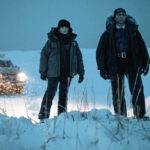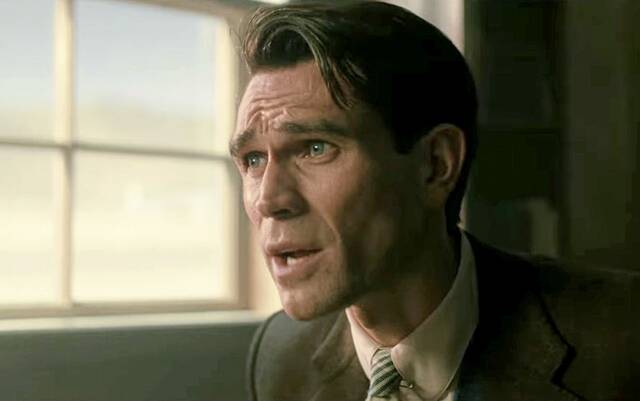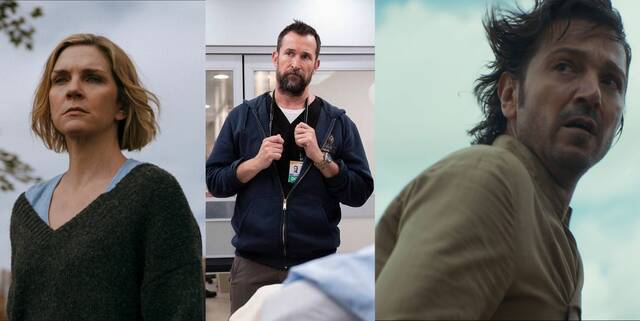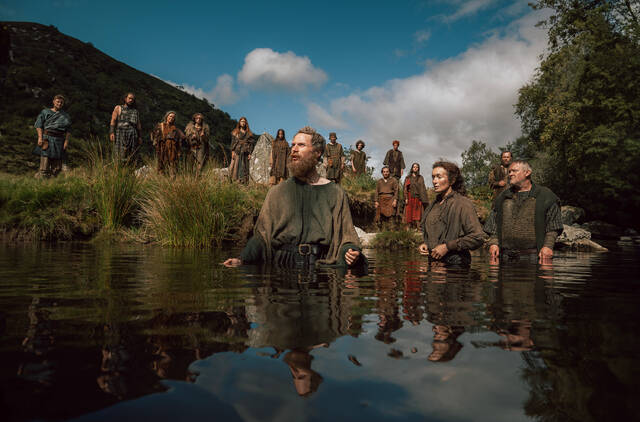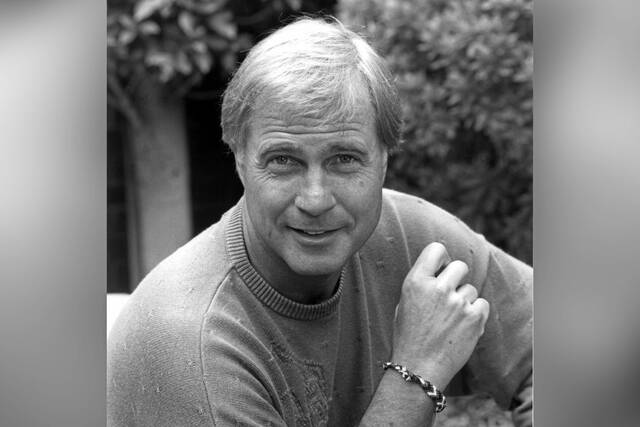Trib Total Media TV writer Rob Owen offers a viewing tip for the coming week.
Your next crime fiction obsession arrives with the fourth season of HBO’s True Detective,” this time subtitled “Night Country,” which debuted Sunday night (9 p.m. Jan. 14).
It’s far superior to the show’s disappointing second season. The characters and relationships are more grounded than in the first season while maintaining the show’s initial sense of dread with suggestions of supernatural forces at play.
Jodie Foster, in her first TV series role since 1975, waited 32 years (since partially Pittsburgh-filmed “Silence of the Lambs”) to revisit a law enforcement role and “True Detective: Night Country” proves it was worth the wait as her character here is also a lifetime removed from FBI newbie agent Clarice Starling.
In “True Detective,” Foster’s Liz Danvers is an Ennis, Alaska, cop who doesn’t play nice with others. That includes Alaska state Trooper Evangeline Navarro (Kali Reis), who six years ago worked with Danvers on a case that went sideways.
Now the pair reluctantly re-team to investigate the mysterious disappearance of scientists from an arctic research station.
This season of “True Detective,” filmed in Iceland, was conceived by series newcomer Issa Lopez, a film writer/director known for the 2017 movie “Tigers Are Not Afraid.” By choosing female protagonists alongside a novel setting and period — an Alaska town that’s plunged into darkness for multiple weeks each winter (that darkness begins as the scientists go missing) — Lopez breathes fresh air into an anthology series that had been on life support.
It helps that Lopez is equally interested in the mystery as she is in what makes Danvers and Navarro tick. “Night Country” does a deep dive into the lead characters’ personal lives, their foibles and their past tragedies.
HBO made the entire right-sized, six-episode season available for review, and it’s safe to say “Night Country” gives HBO early bragging rights for the best new series of 2024.
Unlike the recent, similarly cold country-set “A Murder at the End of the World,” which explored interesting themes but ended with the disappointment of a deflated souffle, “Night Country” sticks its landing with a satisfying conclusion that wraps not only the central mystery but also brings closure to relationships. (It’s also the first season of “True Detective” that made me want to follow these characters in future adventures.)
In a moderated news conference last month for Critics Choice Association members, Lopez said when HBO approached her to see if she wanted to make a new season of “True Detective,” her first instinct was to return to the tone of the first season, which leaned more heavily toward the supernatural. (It’s no accident that a DVD of John Carpenter’s similarly themed 1982 movie “The Thing” can be glimpsed on a shelf at the “Night Country” Arctic research station.)
“What was it about that first season of ‘True Detective’ that hit us all so hard, that stays in our memory in spite of the deluge of … stories out there? And I thought it was the atmosphere. There was something about that Southern Gothic that stayed with us,” Lopez said. “I kept that corner of America that we don’t often see and I just turned it on its head (with the Alaska setting) and I created these two female characters, who are so different, trying to solve this very, very eerie crime in the backdrop of this endless landscape, a character in itself. … There is a little bit of things that are older than the stars and the ice that are hiding and waiting in the dark, if you want to believe that. If not, it’s just a whodunit in the ice.”
Getting Foster on board required some adjustments. In Lopez’s original conception, Danvers was on the verge of a breakdown from trying too long to keep it together, a perfect opposite of Navarro’s “absolute badass.”
“(Foster) said very beautiful things but then the first nasty thing she said was, ‘This is beautiful and it’s great and you’re moving and she’s honest. … I don’t see myself in this though,” Lopez recalled.
When Lopez asked why, Foster said, “I just like strong women.”
The pair started to discuss who Danvers could be that would satisfy the actress and the writer/director.
“I didn’t want to change my script,” Lopez said. “I believed in the two characters I had. However, she started speaking of a character so full of flaws. And when I finished listening to that I looked at her and I said, ‘So you want her to be (a jerk)?’ And she laughed and she said, ‘Yeah.’ And I said, ‘I can do that. I like that. I understand that.’ And I went and I (made Danvers a jerk). A beautiful (jerk) with a lot of hope in her heart. And then, in turn, Navarro had to change and had to become deeper and more soulful. And the script just became better. And this is what I’ve learned throughout the entire process working with Jodie and Kali is, every time that you receive a good note, it’s an opportunity to completely overhaul and take the story to the next level.”
Similar to last season’s ABC drama “Alaska Daily,” “Night Country” takes its Indigenous characters and their culture seriously with Navarro as the lead access point to the Ennis Indigenous community.
“She comes from two different worlds,” Reis said. “She has a Dominican background and an Indigenous Inupiat background, which is something I can personally relate to, being Wampanoag and Cape Verdean and having to not be enough for either side.”
Foster said the backdrop of Alaskan traditions and the season’s Indigenous-centered story was part of the show’s appeal to her.
“We live with the dead as part of our culture in our lives every day,” Foster said. “They walk among us. And the strength or that eeriness of that also contributes to the depth of the show.”
Regarding comparisons to “Silence of the Lambs,” Foster waves them away.
“I don’t think the two are comparable,” she said. “But I think that there’s something underneath the comparison that is very welcome. And that’s that this show does exist in the genre, whether it’s a horror, supernatural, or thriller genre. But so much of how that horror is explored is through the psychological drama, the intimate drama of these people. … That’s the No. 1 reason that the characters’ brokenness — that their issues, how the tapestry of the two of them together, how they heal each other — has this backdrop of psychological spiritual horror.”





